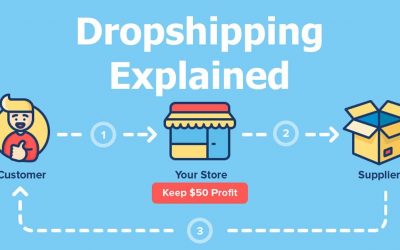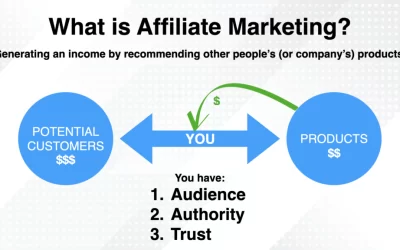Best Ecommerce Platform for Small Business
Introduction
If you’re a small business owner and you’re looking to start an online store, then you’ve probably been overwhelmed by the sheer number of ecommerce platforms out there. It’s hard to compare features, prices, and even login usernames without spending hours on research. Luckily for you, we’ve done that work for you! In this article, we’ll be comparing some of the most popular ecommerce platforms available right now so that you can decide which one is right for your business needs.
Shopify
Shopify is a very popular ecommerce platform that’s easy to set up, use, and maintain. It has a large community of users, developers, and merchants that make it easy to find help if you need it. The mobile app is also excellent for checking sales stats on the go.
BigCommerce
BigCommerce is a robust eCommerce platform that allows you to sell online and manage your store. It’s easy to use, and it has a lot of features for managing your store. BigCommerce is great for small businesses that want to sell online.
Here are some of the pros and cons of BigCommerce:
Pros:
- Easy to use interface
- Lots of options for customizing the look of your site, from colors to fonts and layout options
Cons: * Can be expensive if you need technical support
Magento
If you’re looking for a flexible, feature-rich ecommerce platform that will grow with your business as it grows, Magento is the right choice. It has all the bells and whistles of an enterprise-level platform but can be scaled down to fit smaller businesses with ease. With a community of over 1 million developers and over 300 extensions available, Magento offers great flexibility in terms of design and functionality.
While this is useful if you want to create a store that looks and feels exactly how you want it to look and feel, there are drawbacks: installing these extensions can be difficult, since they require customization beyond what comes out of the box; installing them yourself takes time (and money); if something does go wrong during installation, there are no official support channels available by default.
Wix Ecommerce
Wix Ecommerce is a free platform that makes online selling simple. Small businesses can create an online store with this tool and start selling their products or services in less than five minutes.
The interface is clean and easy to use, so it’s great for beginners who don’t have any experience with ecommerce platforms. Plus, Wix Ecommerce has plenty of features like SEO tools, social media integration, email marketing tools and more — all designed specifically for small businesses.
Volusion
Volusion is a good option if you’re a small business looking for an affordable platform with a wide range of features. The user interface is easy to use and the site has many positive reviews online. It also offers affordable pricing plans, with their most popular plan costing $29 per month (for sites under 2,500 products).
If you need more than just an ecommerce store builder, Volusion offers several other services such as abandoned cart recovery emails and credit card processing fees. You can also create your own custom designs using their drag-and-drop editor or hire someone else to design it for you through their marketplace of designers who specialize in Volusion themes.
Although there are some downsides such as limited inventory management features and limited customizations available through their CMS (content management system), we think that these issues are outweighed by its strengths: easy setup process; large number of flexible payment options; excellent customer support team that responds quickly via phone calls or emails when needed; great reputation among existing users/customers who have used this platform before creating their own businesses over time.”
Squarespace Commerce
Squarespace Commerce is great for small businesses. It’s easy to use and has a free trial period, so you can test it out before committing. If you’re looking for a way to keep things simple while still maintaining control over your store, Squarespace Commerce is one of the best ecommerce platforms out there.
Some other benefits of Squarespace Commerce include:
- Easy setup. Like all Squarespace products, this one is incredibly easy to set up and use. You’ll be able to get started with your own online store within minutes after signing up with the service provider.
- Good support options available through their website or email address (which is remarkably responsive). They also have an active community where users can ask questions or seek advice from others who might have similar issues as them!
3dcart
3dcart is a top-notch ecommerce platform that has been around for over 20 years. It has a strong community of developers, and it is easy to find help and support if you need it.
You may be wondering—why would I choose 3dcart over Shopify? Well, the answer is simple: if you are looking for an affordable ecommerce solution with the tools needed to grow your business, then 3dcart should be at the top of your list!
WooCommerce
WooCommerce is a free ecommerce plugin for WordPress. It is the most popular ecommerce platform and has been downloaded over 38 million times. It’s easy to use, even for beginners. The best thing about WooCommerce is that it can be used to sell physical products or digital products.
You can use it on any domain you want, as long as you have access to the host server’s FTP account where all your files are located. You don’t need any previous experience with coding or programming languages; all you need is basic knowledge of how websites work in general.
You can also customize your page layout by choosing from a number of themes available at WooCommerce theme directory or by creating your own custom theme using HTML5 CSS3 coding language
Prestashop
Prestashop is a great option for beginners, with a strong user interface and extensive documentation. It can be used to sell physical or digital products, and it has a wide range of themes and extensions available. The setup process is easy enough that you should be up and running in no time—and at no cost!
Prestashop also has an app store that makes it easy to find the functionality you need without having to code anything yourself. And if something breaks down along the way, there are many helpful communities where other users share their knowledge or offer their services as consultants.
Opencart
Opencart is free and open source. This means that you can make changes to the code to suit your needs, or hire someone else to do it for you. It also has a large community of developers and users, which can help solve problems with the platform quicker than if you were on your own.
Opencart has a large user base—over 1 million stores are running on this platform worldwide. That’s almost 4 times as many as Shopify!
With Opencart, setting up an online store is easy compared to some of its competitors who require extensive coding knowledge.
You can try all of these sites for free before you commit to anything.
If you have time and patience, you can try all of these sites for free before you commit to anything. All of them offer a free trial period, which means that you can sign up and start selling without having to pay anything up front. Many of them also offer a “no credit card required” option, so that if you want to get your feet wet without paying anything at all (not even for shipping), then there’s no reason not to give those ones a shot first.
There are no contracts involved with any of these platforms either—once the trial is over, there’s nothing stopping you from moving on if something doesn’t suit your needs or preferences.
Conclusion
We hope this post has helped you narrow down your ecommerce options. As we said before, there are many great platforms out there for small businesses and no one is perfect. What’s important is that you find a solution that works for your business and has the features that you need now (and possibly in the future). So take some time and try them all out!













